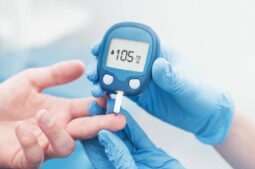
Testicular cancer is the most common cancer among young men worldwide (aged 15 to 35 years). Movember is the global initiative celebrated every year in this month to raise awareness about testicular cancer, prostate cancer, and men’s mental health.
Today, we discuss the impact of testicular cancer on male fertility. To what extent is it compromised? Is it advisable to preserve sperm for future options? How can one become a father after cancer? We address these and other questions in this blog.
Cancer and Male Fertility
Testicular cancer primarily affects men in their reproductive years. Oncological research has made significant avances in recent decades, offering hope for many patients. However, one undeniable fact remains: fertility is affected by radiotherapy, chemotherapy, and surgery which is often needed in certain cases.
Dr. Javier Domingo, an expert in reproductive health and the Director of IVI Las Palmas, explains this:
“Both the direct damage caused by surgery and that of chemotherapy can affect sperm production, either partially or completely. This is because the germinal epithelium of the testicle is highly sensitive to the effects of chemotherapy. The impact may be temporary or permanent, depending on the dose used and, above all, the type of chemotherapy agent employed. Therefore, it is recommended to freeze one or more semen samples before starting chemotherapy to preserve the patient’s reproductive potential.”
Preserving Male Fertility
Movember has gained momentum in recent years, bringing visibility to certain types of male cancer and mental health. We support this initiative from the perspective of reproductive medicine by emphasizing that the preservation of male fertility can be an option for cancer patients.
The majority of testicular cancer cases are detected early, allowing for swift action. This diagnosis is always a source of great concern for the patient, and therefore it is important to offer advice during the consultation so that one or various semen samples can be preserved. This way, the appropriate treatment can be initiated whilst eliminating the additional fear of not being able to have children in the future.
Fertility preservation for oncological reasons is thus not only an option for women but also for men.
Information on Preservation
One advantage for men is that there is no need to wait for the results of hormonal stimulation to preserve their gametes. This can be done in an initial consultation, just after receiving the necessary information from the specialist.
Fertility preservation can serve as an added incentive during oncological treatment. Dr. Domingo states, “As we often observe in our consultations, from a psychological perspective, it is highly beneficial for the patient to have a significant life goal in sight, like the aspiration of becoming a father following a battle with cancer. It undoubtedly helps the man envision a future with exciting projects to pursue once recovered.”
Procedure for Preserving Sperm
As mentioned earlier, this procedure is much simpler than in the case of female patients. In an initial visit, the specialist takes note of details like the patient’s age, previous fertility, overall prognosis, and so on. If the patient decides to provide a sperm sample, this will be used to assess quality indicators. Ideally, multiple samples should be frozen to increase the chances of future fatherhood.
Although it is advisable to wait 2 to 5 days between freezing intervals, if the patient’s oncological treatment does not allow for this time span, a new sample can be preserved the day just after the previous one.
These samples will be frozen at nearly -200°C, and they can be preserved indefinitely. This way, the man’s oncological treatment can take as long as needed.
Fertility Treatments to Become a Father
The survival rate of sperm once thawed is very high, and it will maintain the same quality as the time the sample was obtained. This allows for immediate fertility treatment after recovery, as the results will be the same as if fresh sperm was used.
The reproductive medicine specialist will suggest the most suitable protocol for achieving pregnancy based on the sample’s quantity and quality. The female partner, too, undergoes a pre-fertility assessment to personalize the treatment. These are the options at hand:
- Conventional IVF
- IVF with ICSI, selecting the best sperm for microinjection into the egg
- Artificial insemination
Preserve Your Fertility at IVI
We contribute to Movember, hoping to raise awareness among cancer patients about freezing a semen sample if they wish to become fathers in the future.
Our team is at your disposal if you have any questions about this process. We will be happy to assist you and provide you with a first consultation if you wish. Please call us or fill out our online form for more information.





Comments are closed here.